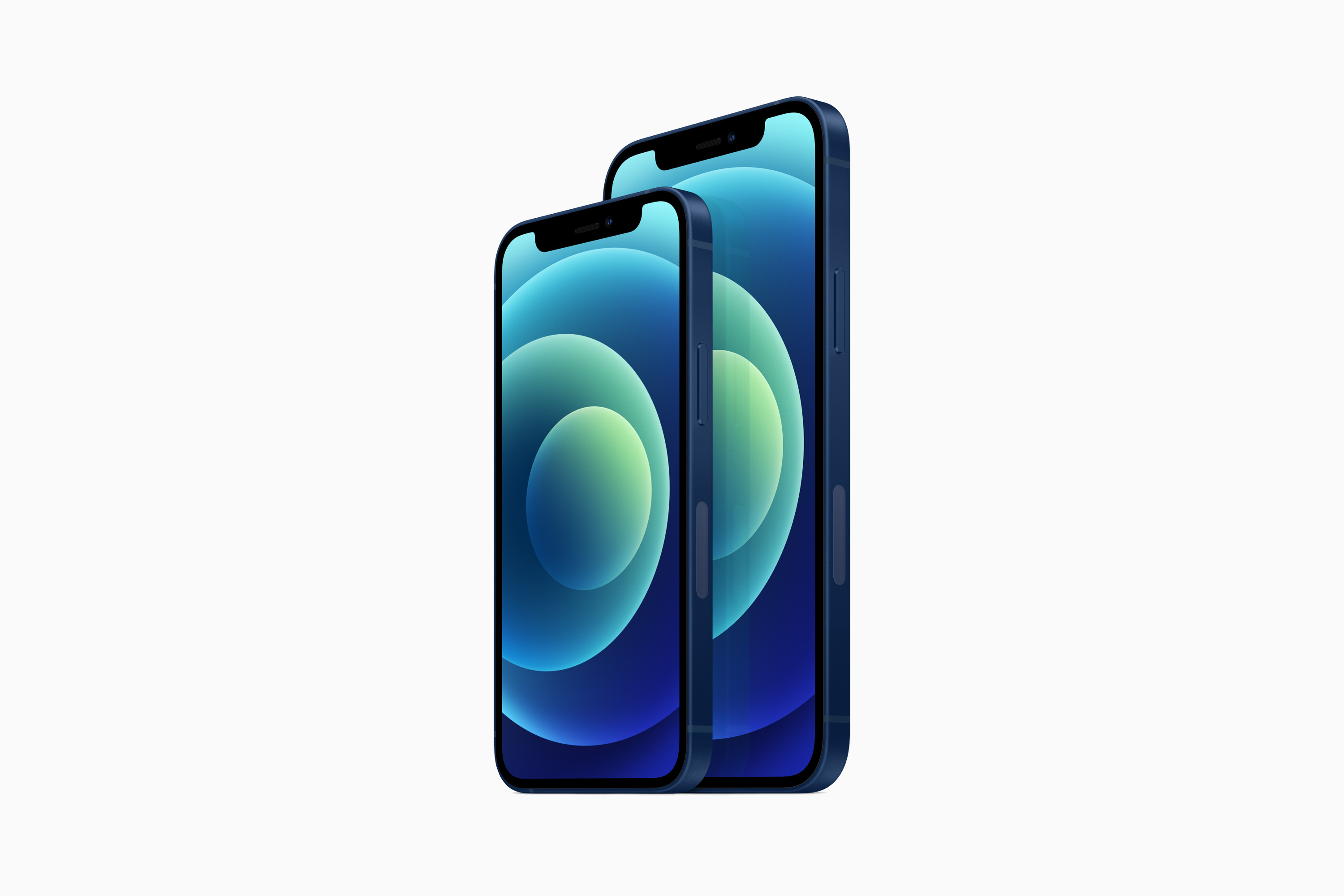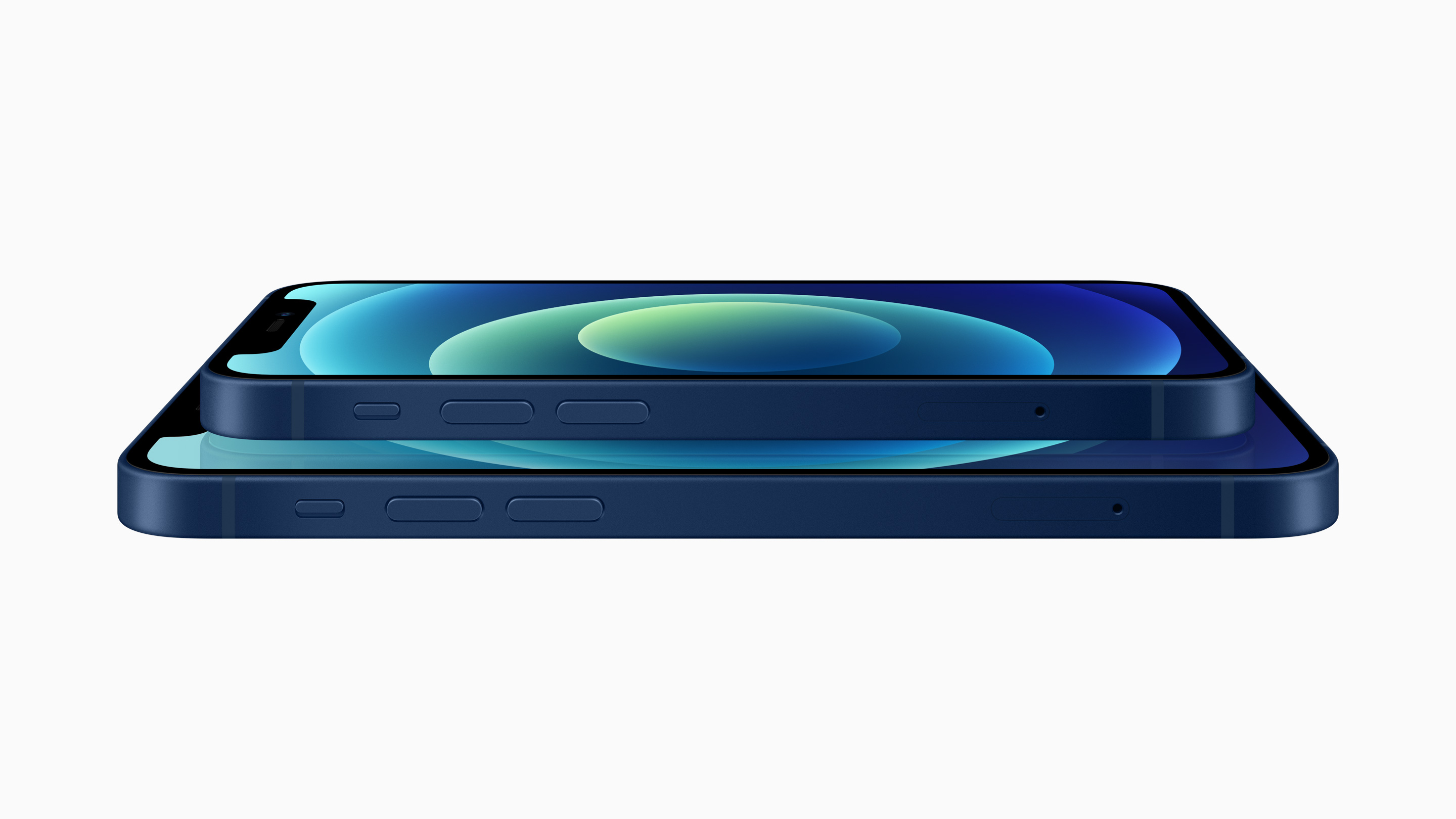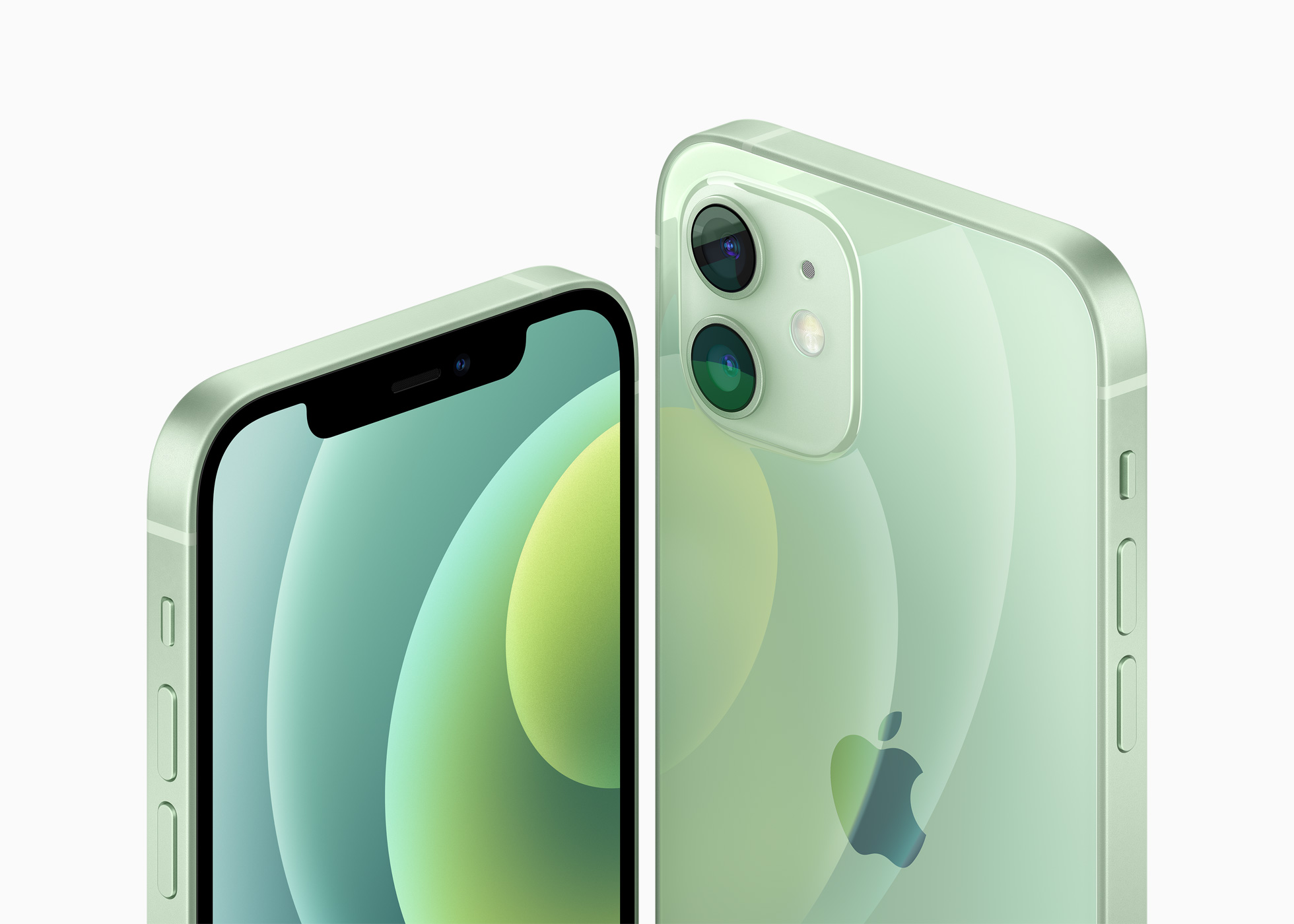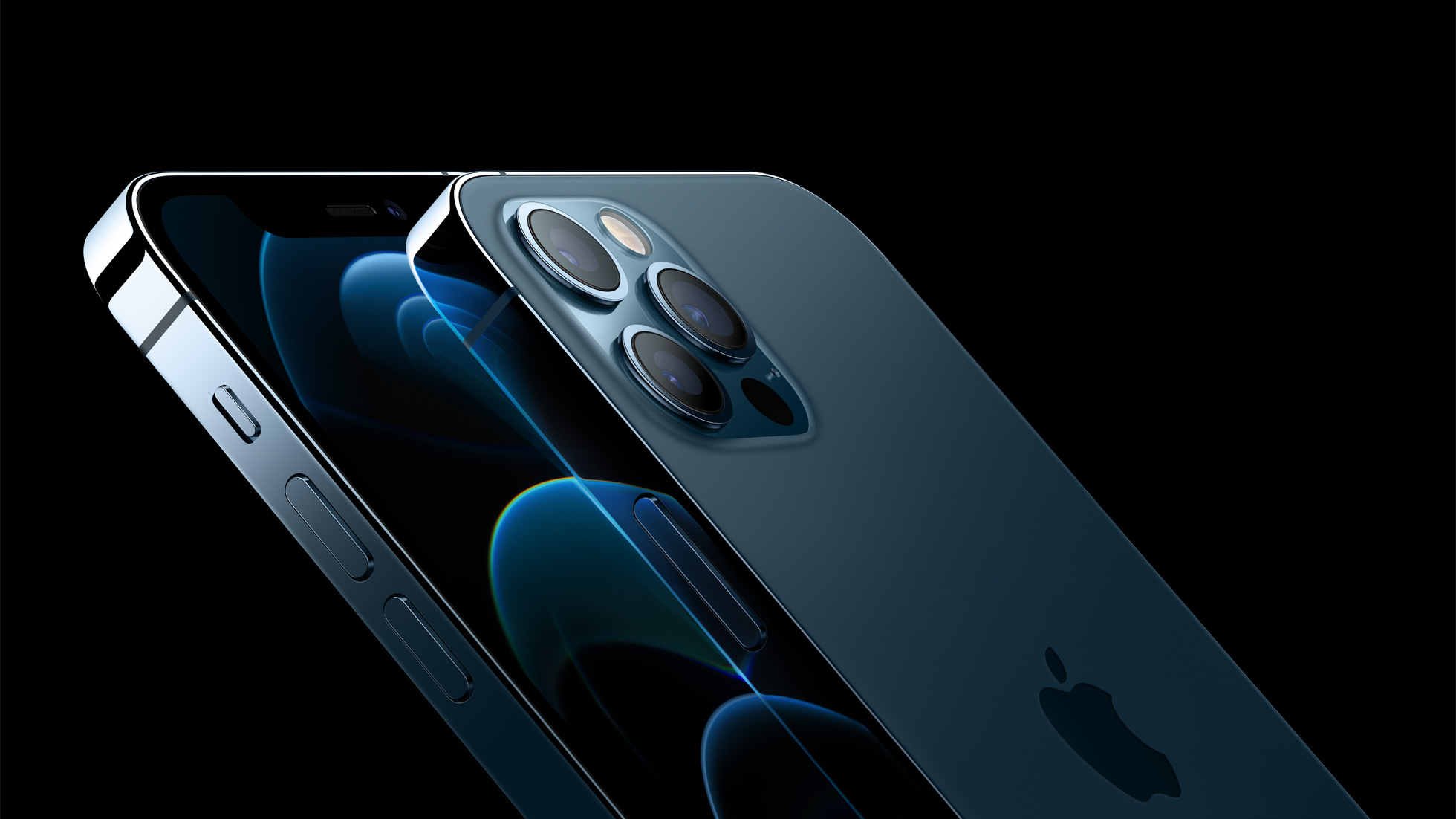iPhone 12 lineup official with A14 Bionic chip and 5G support
From the fastest chip in a smartphone to pro-level videos and photographs, the iPhone 12 has a lot to offer

Apple has unveiled four new iPhone models fitted with its A14 Bionic chip, 5G support and tons of other updates.
These four phones included the iPhone 12, iPhone 12 mini, iPhone 12 Pro, and iPhone 12 Pro Max. As expected, all four iPhone 12 models share a lot of the same hardware and capabilities, but each model stands out in its own way.
Starting with the iPhone 12, we’ll highlight all the key features and differences between all four new phones.
iPhone 12 key features
The iPhone 12 gets a slew of new hardware and features that far exceed the iPhone 11. These upgrades start with the body and screen and continue to the internal bits.
iPhone 12 body and screen

The iPhone 12 is 11% thinner and 16% lighter than the iPhone 11 it replaces. The body also boasts a unique design that places the outer band flush with the front and rear glass, creating a smooth feel.
Despite a smaller body, it boasts a 6.1in OLED display, which is the same size as the iPhone 11. This Super Retina XDR display boasts a 2,000,000-to-1 contrast reaction, enabling it to deliver deep blacks and distinct color separation. It also offers immersive HDR viewing for HD video, photos and more.
Sign up today and you will receive a free copy of our Future Focus 2025 report - the leading guidance on AI, cybersecurity and other IT challenges as per 700+ senior executives
Apple also claims the iPhone 12’s screen is the most durable in the business thanks to its Ceramic Shield coating - a new high-temperature crystallization step that grows nano-ceramic crystals within the glass matrix. Apple says this results in four times the drop performance of the iPhone 11.
Drops aren’t all the iPhone 12 can handle, as it can also handle submersion in up to 6 meters of water for up to 30 minutes. Plus, it takes coffee and soda spills without issue.
iPhone 12 chip and hardware
Like the new iPad Air introduced earlier this year, the iPhone 12 boasts the latest A14 Bionic chip. This Apple-built chip is the first-ever smartphone chip built on a 5-nanometer process.
Compared to the fastest competing smartphone chip, the A14 Bionic’s CPU and GPU speeds are up to 50% faster. This will translate to faster gaming, more robust computational photography and longer battery life.
The A14 Bionic also boasts a 16-core Neural Engine, an 80% improvement over the iPhone 11, which can complete 11 trillion operations per second. This will push machine learning to a new level with the iPhone 12.
The other big hardware news for the iPhone 12 is its 5G compatible, delivering improved download and upload speeds. Even in densely populated areas, the iPhone 12 can reach wireless speeds of 4 Gbps.
The iPhone 12 also has a smart data mode that switches from 5G to LTE when users don’t need the fastest speeds. Once the iPhone senses the need for faster data, it’ll kick back to 5G. This switching helps reduce battery consumption while also ensuring you get the wireless speeds you need.
iPhone 12 camera

No smartphone unveiling is complete without covering its ability to shoot images and videos like a pro. The iPhone 12’s A14 Bionic chip helps with rapid image processing from its dual-camera system.
The dual rear cameras include the Ultra Wide camera and a new Wide camera with an f/1.6 aperture, the fastest aperture ever on an iPhone. This new Wide camera allows 27% more light, making low-light photos pop, even with the flash turned off.
The iPhone 12’s new Deep Fusion process reduces digital noise in your images from all three cameras, Ultra Wide, Wide and the front-facing TrueDepth camera.
iPhone 12 charging and accessories
The rumors are true. The iPhone 12 will not include a charger in the box. It will, however, have the necessary lightning cable to connect to an aftermarket charger.
Making up for its lack of in-box charger is the new MagSafe system, which uses magnets to ensure a positive connection between the phone and a 15-watt Qi wireless charger. This magnetic system also allows you to quickly connect accessories, including a phone case, credit card pocket or even a third-party in-car mount.
iPhone 12 mini key features
Along with the iPhone 12, Apple unveiled the iPhone 12 mini. The iPhone 12 mini is identical to the iPhone 12 in every way, save for two key details.
First, as its name implies, it’s significantly smaller than the iPhone 12, making it more pocket-friendly. Its compact form also makes it the smallest 5G-capable phone available.
The other key difference is the iPhone 12 mini’s 5.4in screen, which is 0.7in smaller than the iPhone 12’s screen.
iPhone 12 Pro key features

The iPhone 12 Pro also features many of the same hardware and specs as the iPhone 12, but it boasts a few enhancements that make it worthy of the “Pro” tag. Most of these enhancements are in its video- and photo-taking skills.
iPhone 12 Pro body and screen
The iPhone 12 Pro boasts the same outer band and flush-glass design as the iPhone 12, but its surgical-grade stainless steel finish and precision-milled matte-glass back give it a more premium look and feel.
iPhone 12 Pro hardware
The iPhone 12 Pro also gains a LiDAR scanner that measures light distance and uses pixel depth information to deliver precise augmented reality (AR) experiences
iPhone 12 Pro camera
Another key difference between the iPhone 12 and iPhone 12 Pro is in its camera.
The iPhone 12 Pro boasts the all-new Apple ProRAW for more creative control in photos. Users can use the iPhone 12 Pro’s native photo-editing app or import these RAW files into nearly any photo-editing software to make precise tweaks.
The iPhone 12 Pro also adds a Telephoto camera with a longer focal length and fixe-times optical zoom for getting shots from a distance.
On the video side, the Pro model features the first-ever end-to-end Dolby Vision experience. It also delivers 4K recording at up to 60 frames per second.
iPhone 12 Pro Max key features
For the most part, the iPhone 12 Pro Max is the same as the iPhone 12 Pro, but it gains a 6.7in screen, making it 0.6in larger than the base Pro model.
The Max model’s camera per also gets a camera upgrade, as its Wide camera gets an f/1.6 aperture, a 47% larger sensor with 1.7μm pixels for 87% better low-light performance relative to the base Pro model.
iPhone 12 pricing and availability
The iPhone 12 and iPhone 12 Pro will be available for preorder on October 16 at 5:00 a.m. Pacific Time, and they’ll arrive on October 26.
The iPhone 12 mini and iPhone 12 Pro Max preorders will start November 6 at 5:00 a.m. Pacific Time. Deliveries will start November 13.
The iPhone 12 and iPhone 12 mini will be available in 64GB, 128GB, and 256GB models. The iPhone 12 will start from $799/£799, and the iPhone 12 mini will start from $699/£699.
The iPhone 12 Pro and Pro Max will be available in 128GB, 256GB and 512GB models. The iPhone 12 Pro will start from $999/£999, and the iPhone 12 Pro Max will start from $1,099/£1,099.
-
 Microsoft unveils Maia 200 accelerator, claiming better performance per dollar than Amazon and Google
Microsoft unveils Maia 200 accelerator, claiming better performance per dollar than Amazon and GoogleNews The launch of Microsoft’s second-generation silicon solidifies its mission to scale AI workloads and directly control more of its infrastructure
-
 Infosys expands Swiss footprint with new Zurich office
Infosys expands Swiss footprint with new Zurich officeNews The firm has relocated its Swiss headquarters to support partners delivering AI-led digital transformation